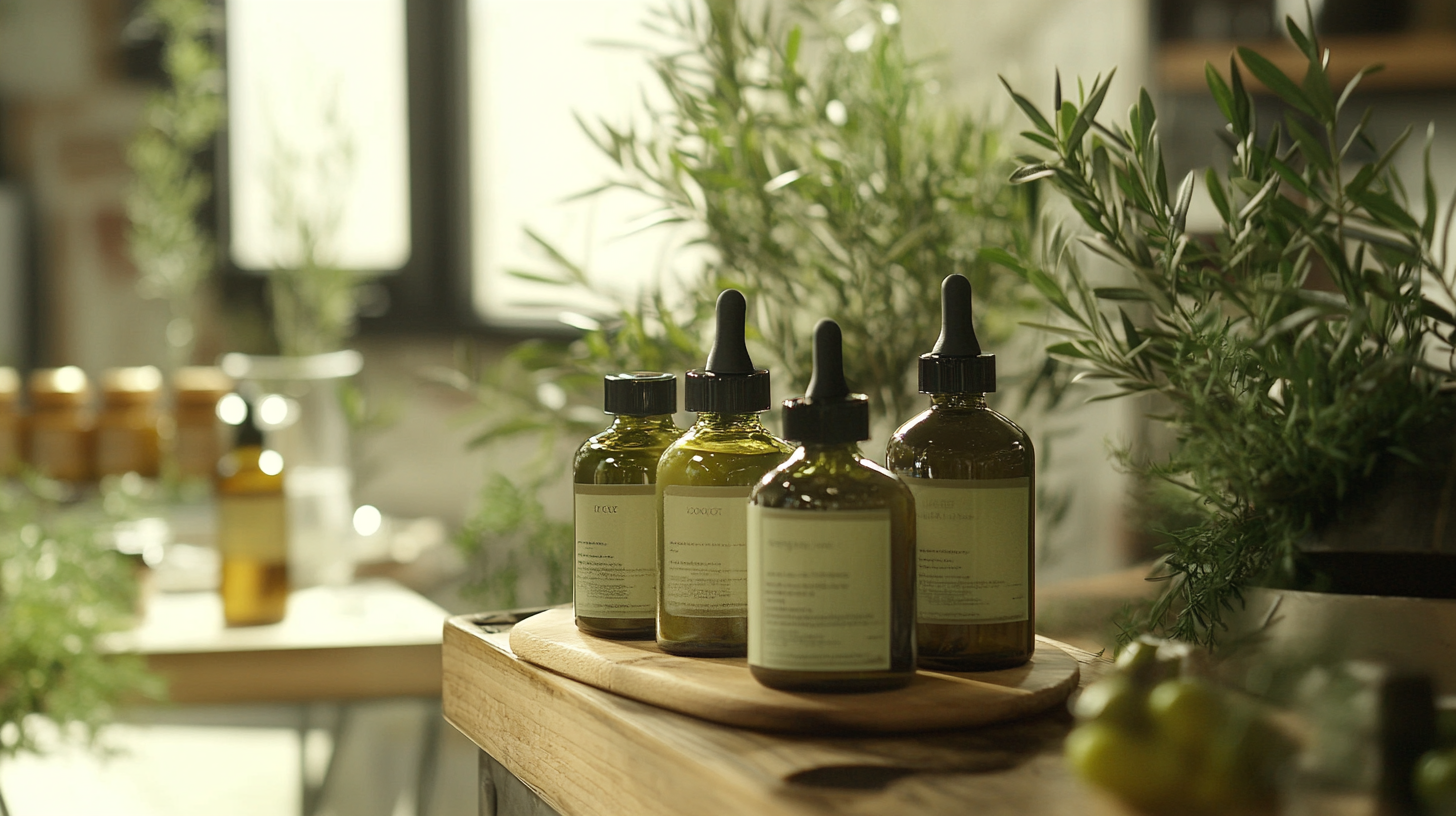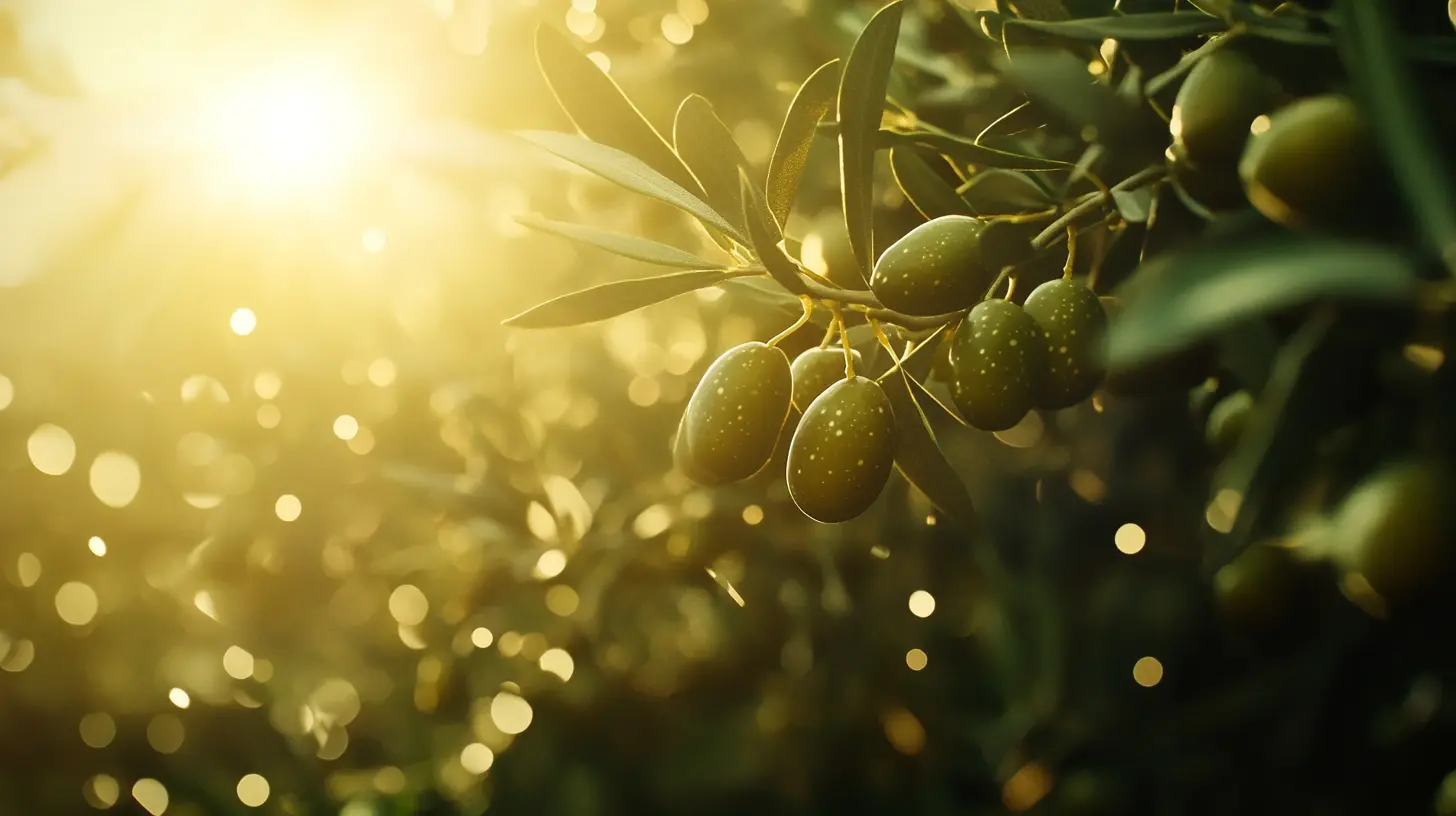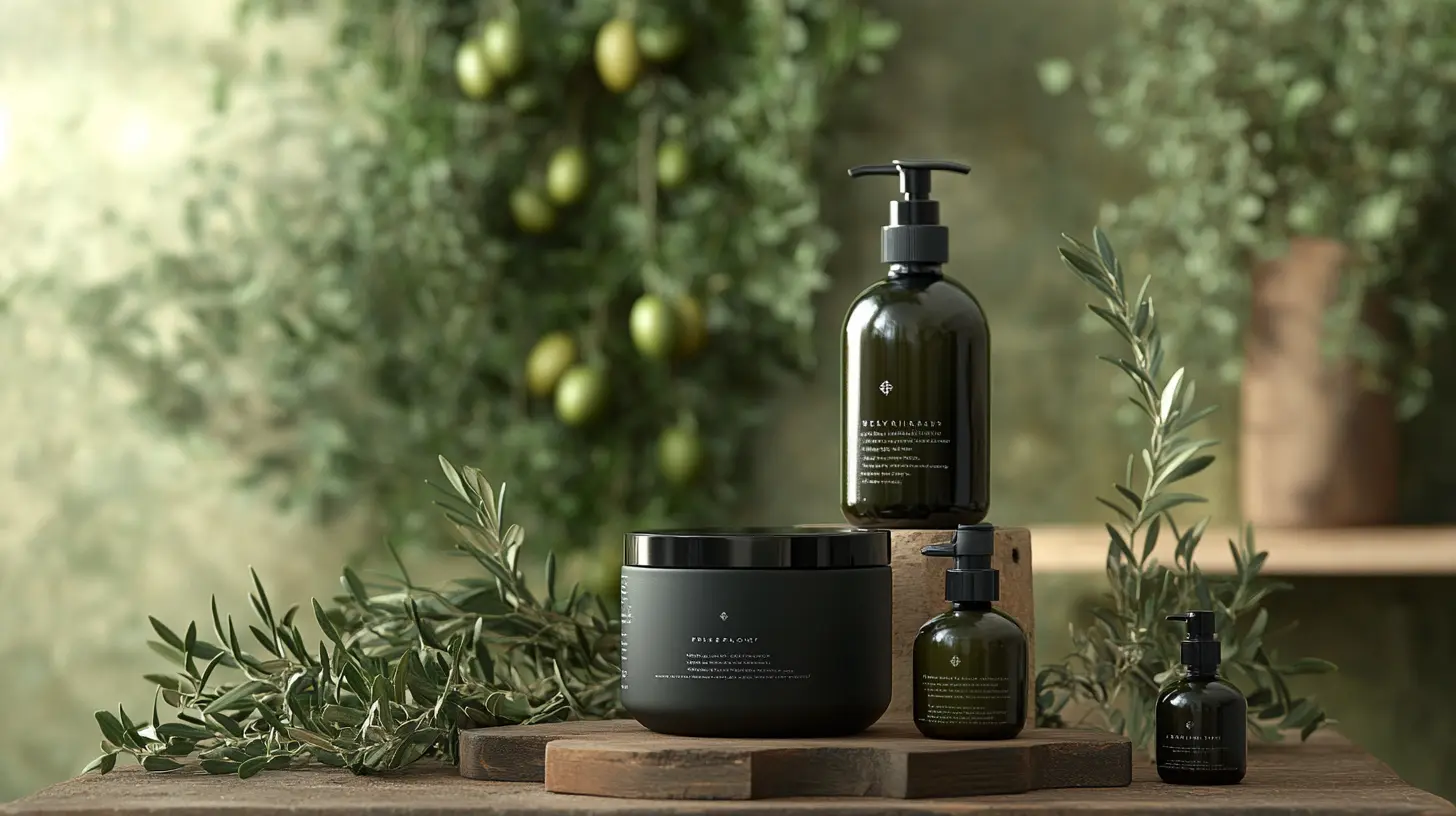Leave Your Message
- Phone
- E-mail
- Whatsapp
- Whatsapp


In the past few years, demand for premium faux olive products has increased as the appreciation for decorative artificial plants in homes and offices continues to grow. Industry leaders report that, by 2025, the global artificial plant market would reach USD 2.5 billion, in which a considerable part will come from realistic-looking faux olives. Such emerging trends speak not only of consumers' shifting preferences towards decor solutions that are long-lasting and low-maintenance but also towards an increasing sophistication in designs and quality of faux flora.
At Dongguan Hmflowers Industrial Company Limited, set up in 1998, we know well the idea of making quality artificial flowers, trees, and plants, including olive polys, that may simulate the natural versions in looks. With our strong production capabilities and commitment to innovation in this area, we can meet diverse market needs while still being able to offer products that are incredibly real-looking and elegant in our faux olive range. This is where businesses need to come in and use the right sourcing methods so that they can follow the trend and give the customers the best of the best in terms of premium faux olive product offerings around the globe.

In recent times, faux olive products have emerged as a massive trend within modern décor; their aesthetic and practical advantages have made them appealing to a wider audience. According to a report from Market Research Future, the artificial plants market is expected to grow from 2021 to 2028 at a CAGR of 6.5%, which is a considerable increase fueled by the appreciation of the almost-real qualities somehow added to interiors by artificial greenery, especially olive branches and trees. The very appeal of its products comes from how they exude warmth and calm while asking for mere minimum care, which seems to be the selection for a trade that serves both homes and workplaces. Sustainability is yet another argument that supports faux olive products. A Statista study confirms that sustainability is important to over 50% of consumers' purchase decisions. Minimal resources and water are required to produce faux olive products since they are made with environmentally friendly materials. Together with a nice look throughout the year, these products also do not contribute towards a shifting aesthetic through the seasons, thereby allowing a designer or homeowners to produce a steady look throughout the year. The level of versatility also serves to make these products very popular. They fit perfectly into such disparate decor styles as Scandinavian minimalist and rustic Mediterranean. A recent American Society of Interior Designers survey revealed that plants-not limited to just living ones-rank among the top three factors they believe enhance the indoor environment. The lifelike appearance that faux olive branches and trees carry, then, is just one more stamp of authenticity upon the charm they afford any space, thus staying in tune with the volatile taste buds of the modern consumer.

Factors such as consumer expectations and market trends govern the entire sourcing operation of premium faux olive products worldwide. New studies show that one of the greatest influencers of online consumer purchasing behavior toward a green agricultural product is product environmental information transparency. Sustainability is becoming an increasingly important consumer driver, which means that brands emphasizing eco-friendliness and clear product information are more likely to gain the attention of discriminating buyers.
Furthermore, these changing consumer habits have centralized the importance of e-commerce in the minds of the suppliers. Recent reports have indicated that about 70% of consumers today prefer quality and durability to price. This trend essentially places responsibility for marketing the perception of quality and longevity, as well as in terms of ethical production, on the suppliers of faux olive goods. If they can establish some credibility through sustainable sourcing and transparent practices, the brand can enhance its standing in the earnings matrix and win consumer loyalty.
In the meantime, the worldwide market for cold-pressed oil is still growing, with significant growth expected well into the next decade. This makes sourcing faux olive goods a perfect avenue to align these products under this bright light. Growing consumer interest in naturally high-quality alternatives means that suppliers will begin to innovate and put out products of sublime quality. Keeping the emphasis on these chief points, businesses can meet increasing consumer demands and strategically position themselves in the marketplace.

When diving into the world of premium faux olive products, it is time to explore some of the leading international markets that spearhead this very niche segment. Italy, Spain, and the United States have become worlds on their own in taking the mantle from end to end as far as self-proclaimed high-quality faux olives are concerned; all these being hotbeds of strong consumers demanding an alternative to sustainable and innovative home décor. Such regions boast extensive cultural heritage established on the cultivation of olives but have grown for contemporary consumer nomenclature on green alternative preferences, making them arenas of highest relevance for such sourcing.
Artisans, as well as manufacturers in Italy, are coming into the movement with fresh modern techniques married to traditional craftsmanship, in which case, it should be pretty accurate for such kinds of faux olives to successfully simulate the real – but at the same time, all the drawbacks that accompany having them aren't present. Spain, with its great huge olive gardens, is filled with inspiration from which one can translate designs into faux. The Spanish market thrives in creativity with designers constantly reinventing the idea of what a product that falls within the category of faux olives can look like, all these while being committed to high quality.
The United States has equally made its tremendous strides in the faux olive branch, and one of the major identifying characteristics trendy in the society at the moment is that while the cutting-edge green trend in interiors spotlights the lushness of flora, it almost always does away with the upkeep. American companies concentrate their efforts on innovative design and materials, making space for wonderful tastes and, at the same time, representing sustainable options. Thus, citizens acquire these faux olive products from the finest top global markets to have unique pieces enlivening their living spaces all without compromising the integrity of the environment.

In the world of sourcing high-quality faux olive products, one of the most vital areas of understanding is quality assessment. The choice of material used is paramount. The high-quality faux olives usually employ excellent synthetic materials designed to mimic the real texture and feel, giving them the lifelike artistic impression. UV resistance and durability are other aspects against which the products should be tested-the easy sparkle of the products should not fade away when kept exposed to sunlight for a while.
Constituting an equally relevant aspect of the quality assessment is the design detailing. Realistic coloring, for example, allows faux olives to exhibit characteristics that are close to the sizes created by nature and its very imperfections. The finish should be examined too—everything from matte versus glossy will influence the appearance dramatically. A warranty or satisfaction guarantee is another signal that indicates confidence from the manufacturer's side.
Last but not least would be recommendations and reviews from trusted sources. Customer reviews can tell whether the faux olives do what they are supposed to do and how well they perform and last. Engage with online home decor communities or forums and listen in on shared experiences that ultimately shape your buying process. With all these factors in the mix, you can determine with confidence the best faux olive products capable of sprucing up your space and delivering aesthetic quality.
In the current global market, the importance of sustainable sourcing has become almost paramount for faux olive products, which appeal for their beauty and lesser environmental costs as compared to real olive ones. As noted in Grand View Research, the global market for faux olive products is anticipated to have a growth of 5.4 percent compound annual growth rate (CAGR) from 2021 to 2028, which expresses the rising demand for home and landscape alternatives that are sustainable, while with consumers growingly conscious of the environment, the sourcing regimes behind such goods are increasingly scrutinized, forcing brands to harbour the thought of sustainability across their supply chains.
One crucial option for sustainable sourcing is the use of recycled materials in producing faux olive items. A study by the Ellen MacArthur Foundation shows that transitioning to a circular economy by 2030 could reduce greenhouse gas emissions by 39%. Manufacturers can thereby use recycled plastics and bio-based materials to curtail the ecological footprint of their faux olive products without compromising quality. Such an approach not only stands well with the environment but also resonates with an emerging consumer segment inclined toward sustainability in purchasing.
Another important area regarding sustainable sourcing is ethical labor practices. Fair Trade Certified has said that including certain labor standards increases transparency for products and enhances customer loyalty for the brand. These brands that seek to work with suppliers who adhere to ethical labor practices will not only provide a direct benefit to local economies but also build trust among consumers for their products. By adopting these sustainable sourcing practices, a company can marry the environmental elements and the social responsibility elements of its faux olive offerings, thereby creating a unique position in the market.
The olive lookalike product is gaining momentum since the last few years, so much so that it has now entered the list of must-haves for home and event styling. These very realistic replicas of olive branches and fruits make for a beautiful rustic touch with elegance, perfectly fitting for both regular decor and special occasions. One strong trend involves their use in minimalist designs and Scandinavian interiors, where these green hues play a complimentary role against neutral backgrounds. Depending on the theme-from coastal chic to modern farmhouse-the faux olive can work just anywhere.
In tandem with this is the equally growing idea of sustainability and eco-friendliness that work out in the decor industry. Artisans are looking for materials that not only emulate the natural beauty of olives but are also made with the least harm to the environment. This trend is yet a hit with eco-conscious clients who, while wanting to be stylish, will also want to choose wisely. Thus, faux olive products made from recycled materials and sustainable fibers are gaining traction; thereby giving guilt-free chicness to any space.
Faux olive products are not only reserved for the interiors of homes; they are also gaining traction in the event styling field. Be it weddings, corporate events, or intimate gatherings, these accents can beautifully change any venue. Designers use faux olive arrangements in centerpieces, table runners, and bridal bouquets for an elegant yet easygoing effect. With the evolution of this trend, there is sure to be an influx of other innovative uses for faux olives in styling projects, hence firmly establishing them as one of the decor must-haves.
In a fast-changing landscape of the food industry, then excellent faux olive suppliers are quite the quintessential matter enticing consideration, especially headline themes concerning food safety and credibility nowadays. With olive supplies from across the globe remaining meager amidst extreme weather and pest occurrences in high production countries, differentiation between genuine and fake products is a must. The revelation that about 80 percent of fine olive oil is mixed in with some inferior quality only adds salt to the wound. Businesses involved in this definitely gain in confidence if they vouch for quality and legitimate sources of faux olive as preventive measures in such an unfortunate situation.
By forming stable relationships with trustworthy suppliers, a company can have a certain level of competitive advantage. From the side of the business, engaging suppliers in direct communication with all their fears may help with supply chain credibility as businesses will be able to attest the authenticity of their products and further engage suppliers to assess their sourcing practices in view of present-day concerns over the sanctity of the food chain. Trustworthy suppliers may illuminate production methods or any point they address, such as quality control, as this would be an important defense against unworthy products for customers. Threatened with disgrace and the recession, businesses must keep an eye open against such blatant cases of fraud and need to take action.
This is of great importance: stringently enforce quality assurance alongside regular audits of suppliers. Employing a reputation-based approach to selecting suppliers could give a tremendous boost to the brand's recognition in the market. This shift toward more ethical sourcing is reflective of the increasing trend in consumer demand for transparency in the food chain and quality assurance, while so much attention is paid to food safety disasters now.
In marketing faux olive items, understanding the target market is a top priority. Focus first and foremost on identifying the demographic(s) that would resonate with your brand. Is it high-end restaurants, artisanal grocery stores, or consumers searching for sustainable alternatives? Shape your marketing strategy to appeal to these groups, and the visibility and desirability of your products will be increase tremendously.
Social media platforms serve as a great way to get to your audience. Insta-posts, step-backed tutorial videos, and customer testimonials forge visually appealing presentations of your faux olive products. Getting into partnerships with influencers of the culinary and sustainability kind could guarantee wider reach and acceptance as credible collaborative entities. Building share-worthy content to elaborate on the story behind your faux olive products will inspire emotional engagement from potential customers, serving as a springboard for interest in your offerings.
Another essential marketing strategy would be to demonstrate the unique benefits of the faux olive products. Make it a point to highlight their sustainability, versatility, and health-based considerations that would target the health-conscious lifestyle. Explain to potential customers why they should consider faux olives against traditional ones, from a lower impact on the environment to a longer shelf life. When your products are branded as not just alternatives but rather as a superior choice, the reputation will be built very strongly in the market.
The top global markets for premium faux olive products include Italy, Spain, and the United States, known for their craftsmanship, creativity, and sustainability in home decor solutions.
Sustainable sourcing is vital for faux olive goods as it ensures lower environmental impact, meets consumer demand for eco-friendly products, and involves the use of recycled materials, thereby reducing greenhouse gas emissions.
Italy contributes to the faux olive market by combining modern techniques with traditional craftsmanship, producing faux olives that authentically reflect the look and feel of real olives without the environmental costs.
Spain plays a significant role by providing design inspiration from its vast olive groves and fostering creativity among designers, who continuously innovate faux products while maintaining high-quality standards.
The United States is focusing on innovative designs and sustainability in faux olive products, catering to diverse tastes in the rising trend of greenery in interior design without the upkeep of real plants.
Businesses can ensure authenticity by building relationships with reliable suppliers, maintaining transparency in sourcing, conducting regular audits, and implementing stringent quality assurance measures.
Ethical labor practices are significant as they enhance product transparency and brand loyalty, positively impact local economies, and instill consumer trust in the authenticity and quality of products.
The increased scrutiny of sourcing strategies is driven by the growing consumer awareness and demand for sustainability, particularly as the market for faux olive products experiences significant growth.
Sustainable faux olive items are often made using recycled plastics and bio-based materials to reduce their ecological footprint while ensuring high-quality production.
It is important for faux olive brands to adapt to consumer preferences for eco-friendly and innovative products to remain competitive in the market and meet the rising demand for sustainable home décor solutions.

